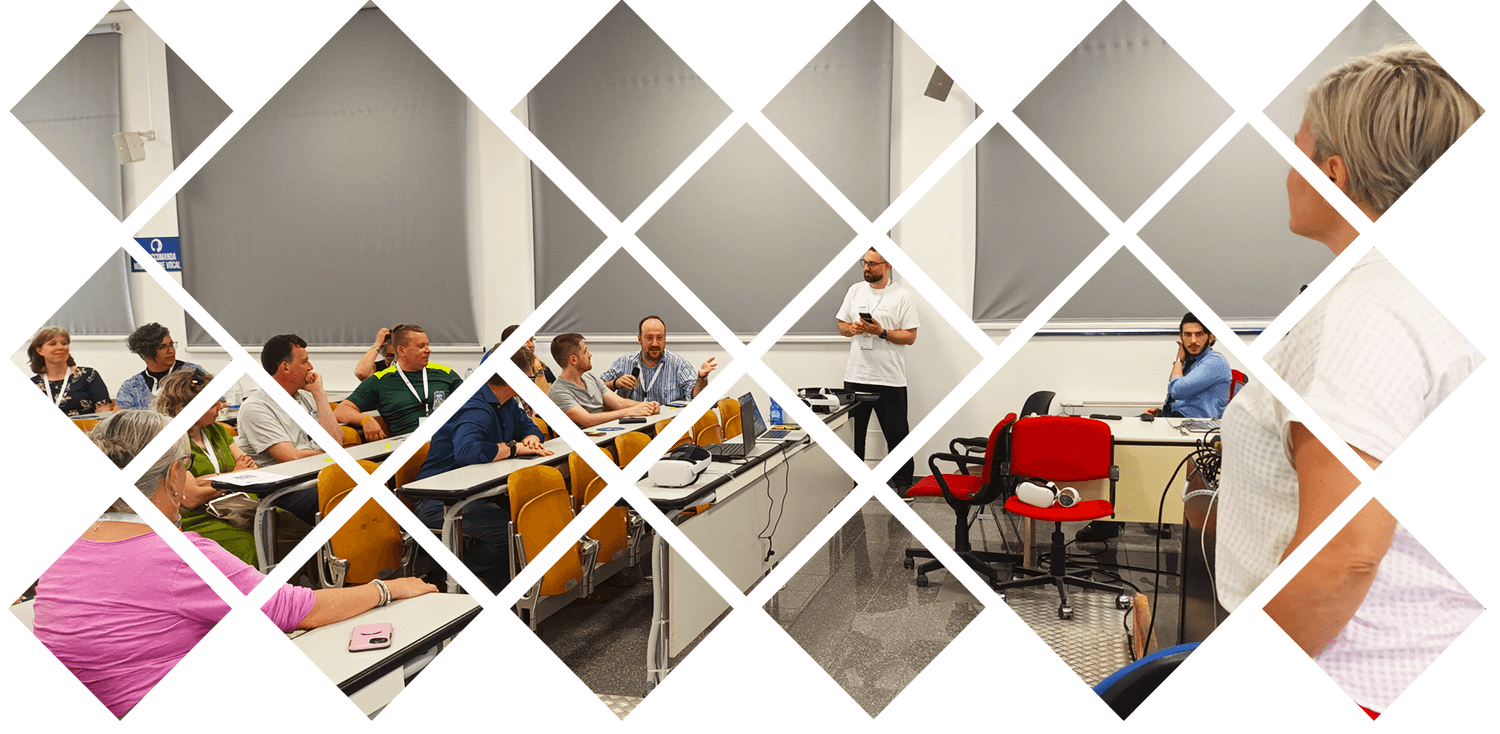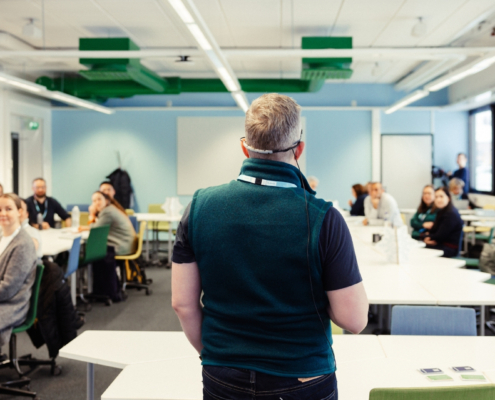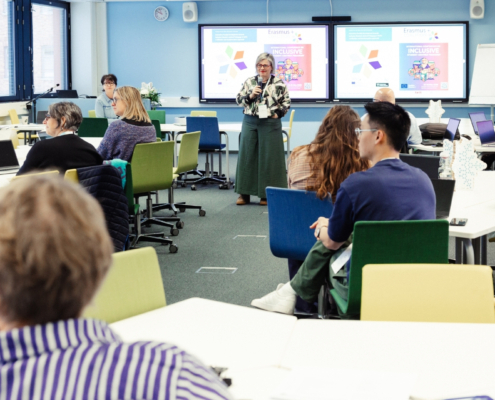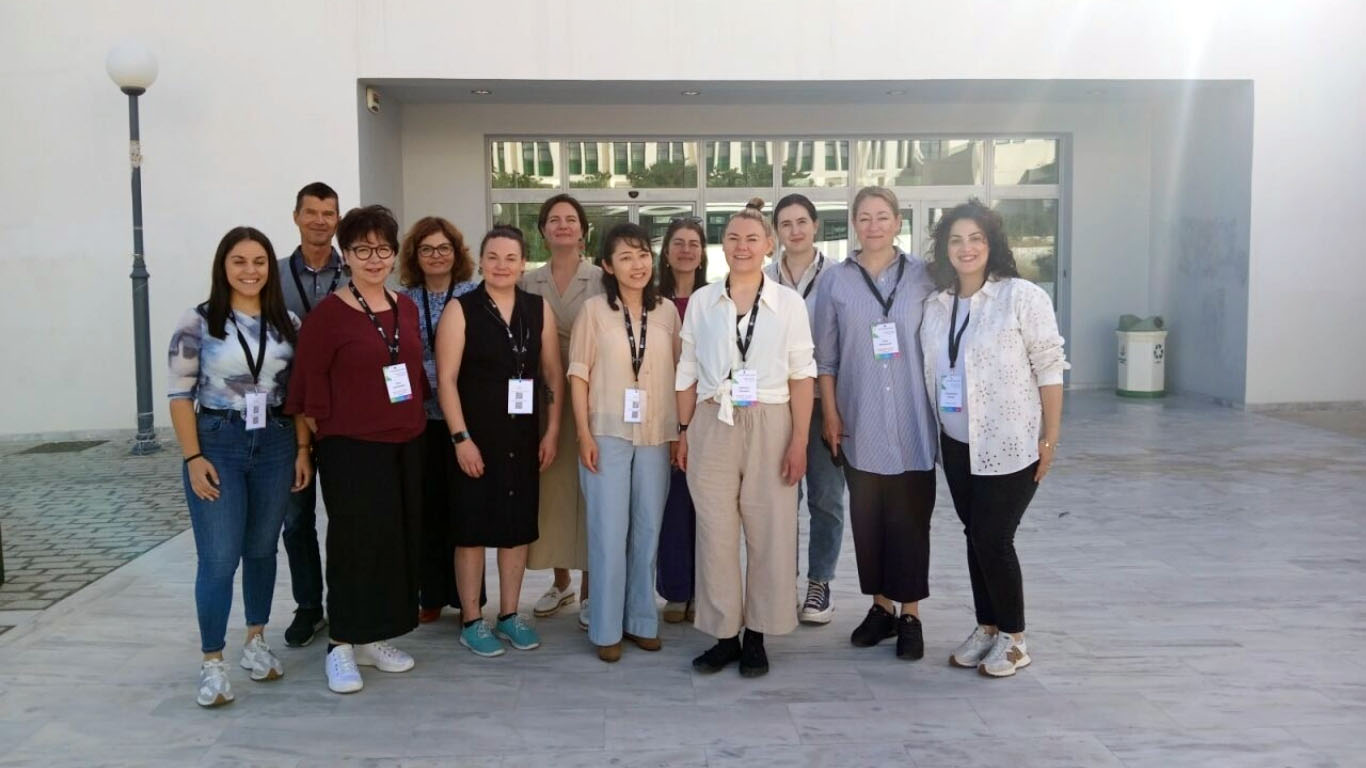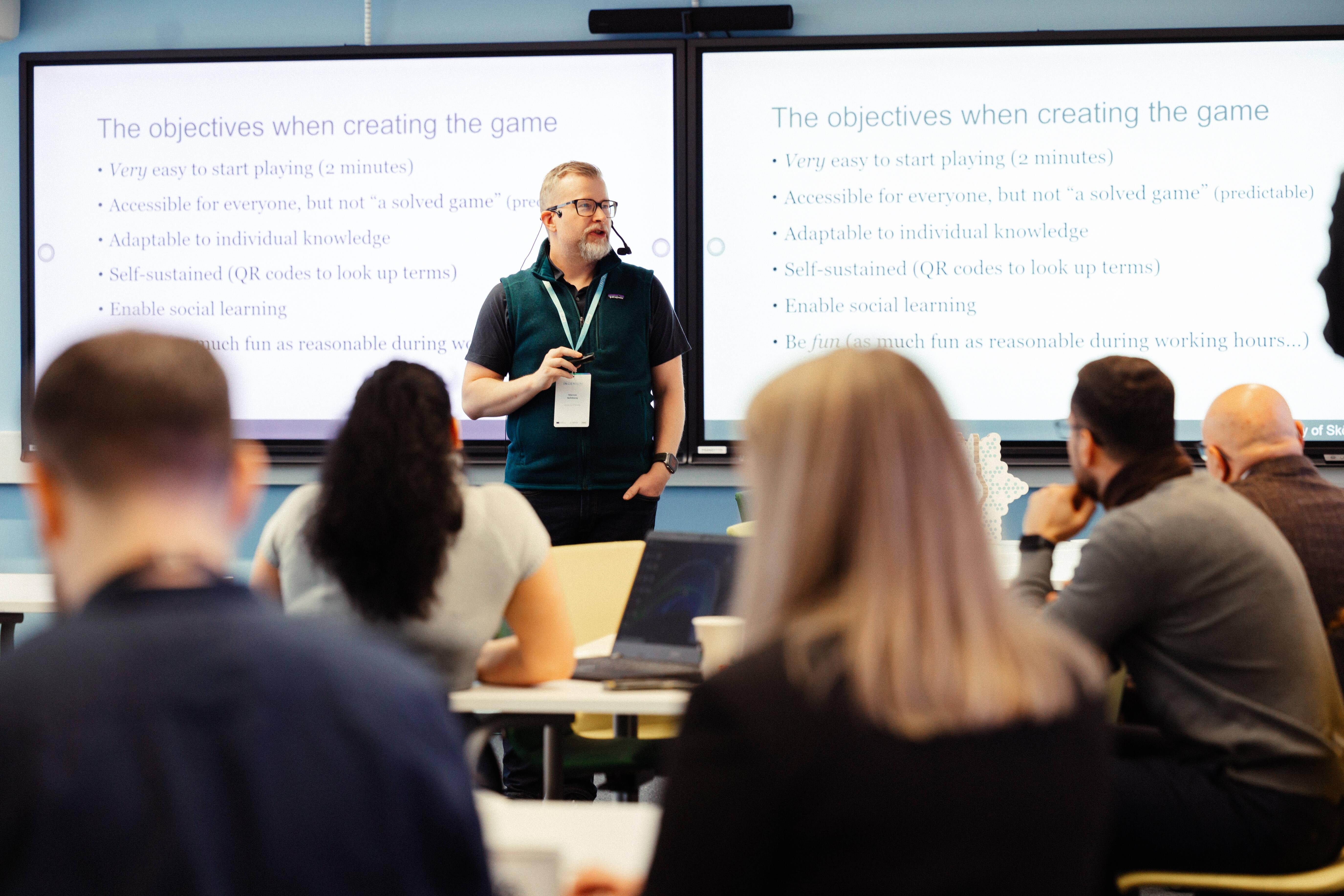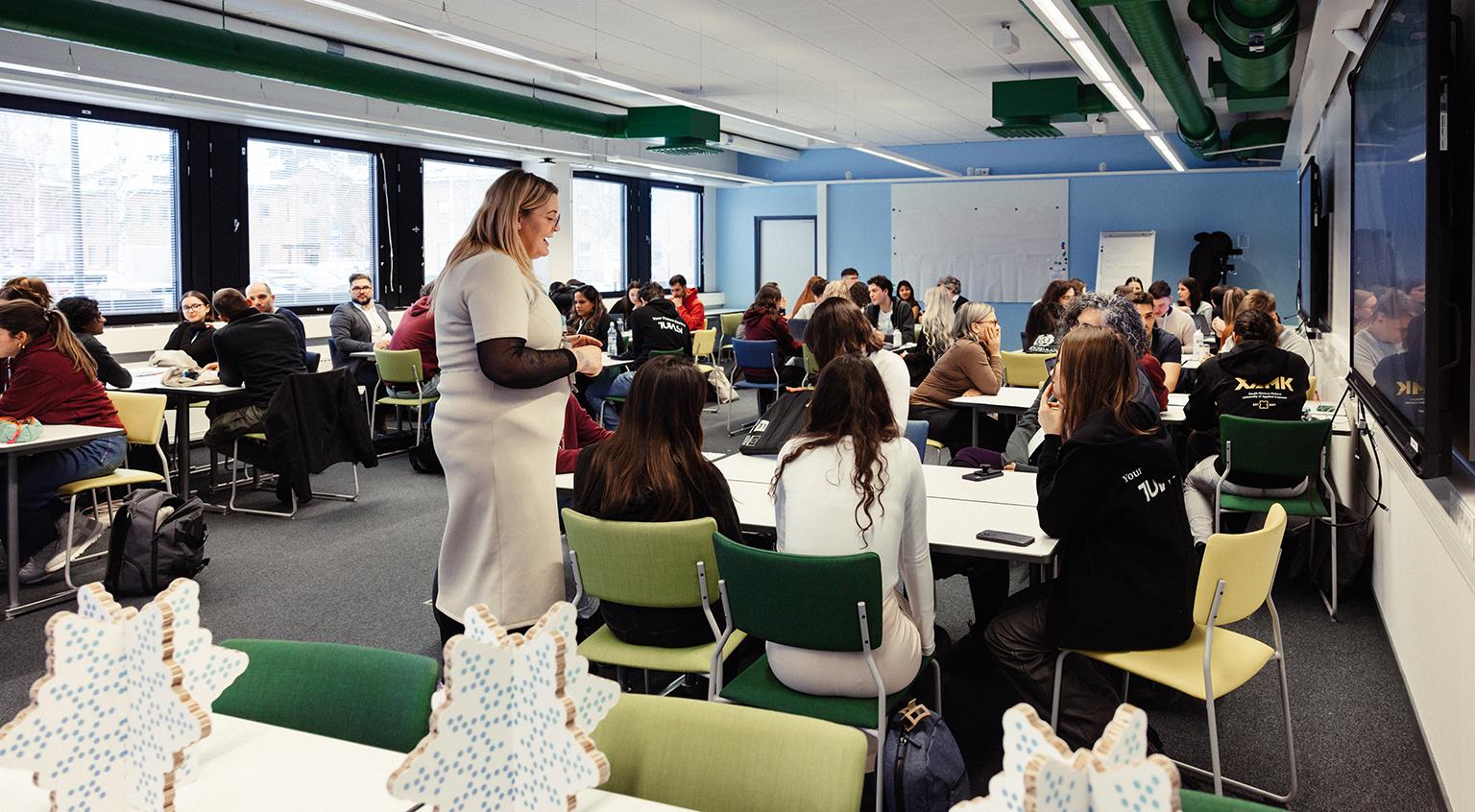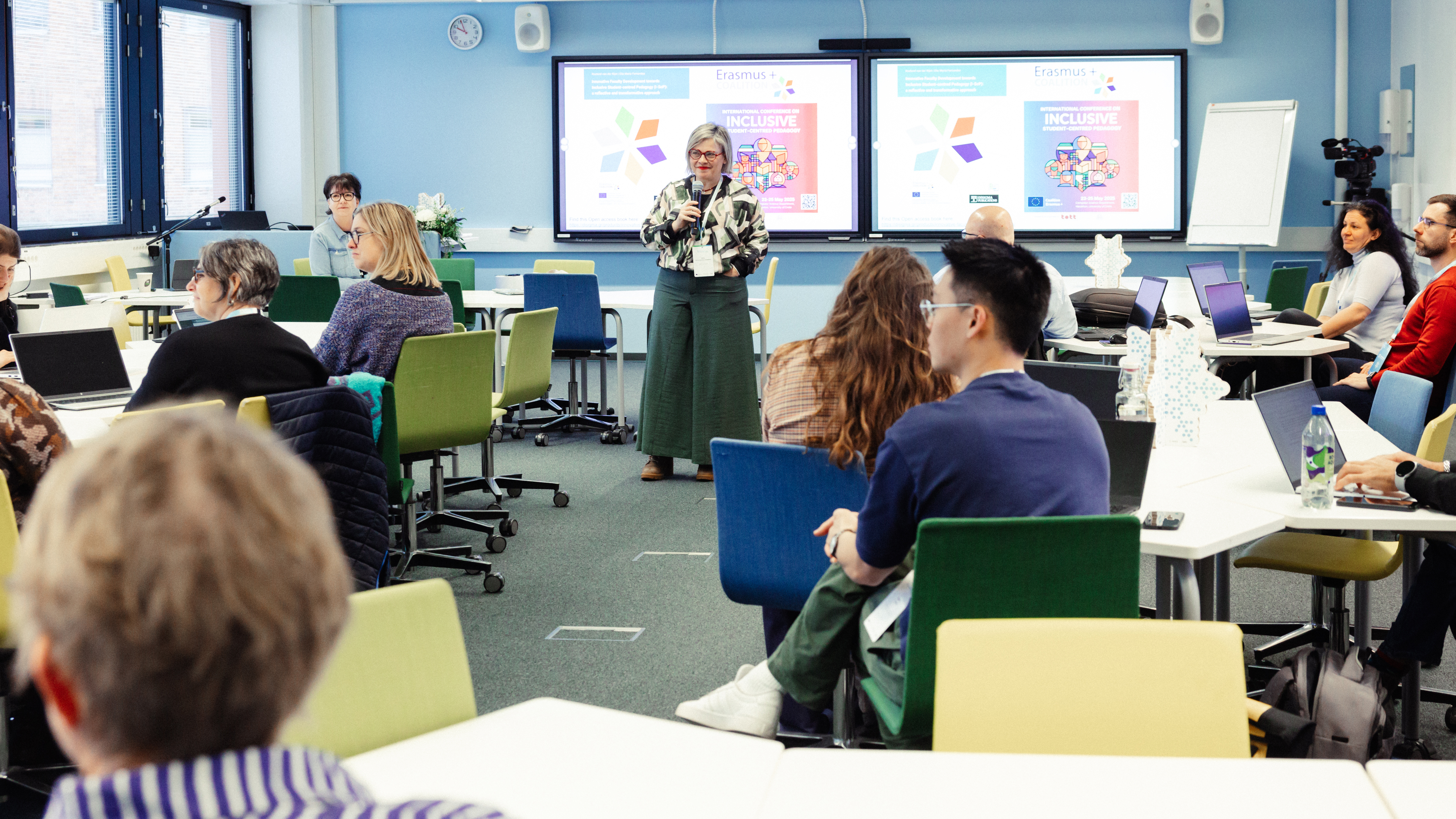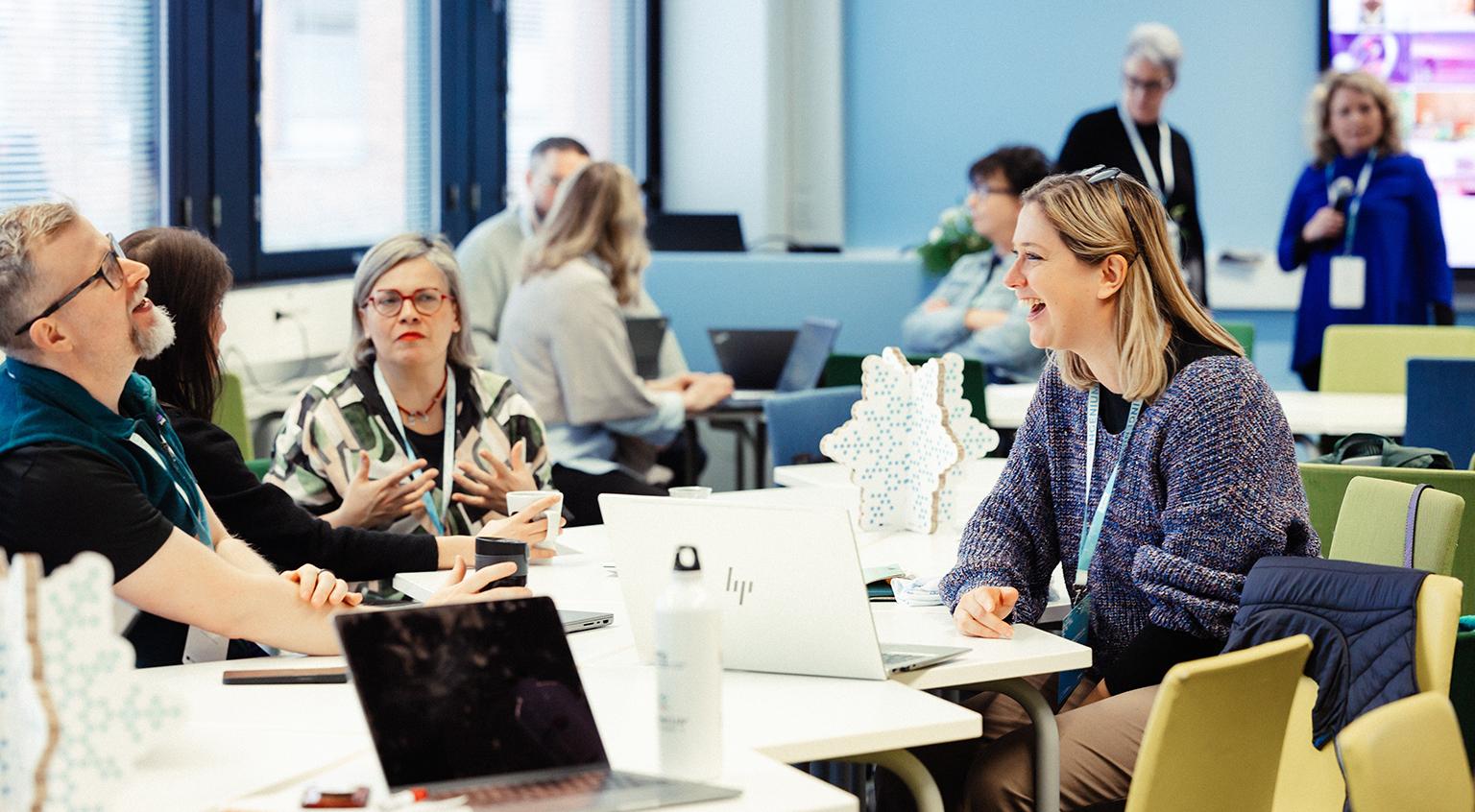INGENIUM Staff Academy
The Staff Academy is an event where educators meet to share, transfer, and showcase innovative pedagogical methodologies within the European University INGENIUM. The event is held twice a year, and the content is shared publicly on this webpage. In addition to the events, Staff Academy Webinars are held throughout the academic year.
Each event will be hosted by one of the INGENIUM Universities within the 10 Days of INGENIUM framework. The Staff Academy workshops consist of ten individual sessions, each lasting an hour, with one from each partner university. The sessions are based on proposals submitted by INGENIUM staff implementing innovative learning methodologies or those wishing to develop them in cooperation with others.
The Staff Academy sessions allow participants to gain and enhance their teaching and facilitation skills by providing additional time for hands-on learning and interaction with colleagues from diverse backgrounds and fields. It will also provide an appropriate framework for knowledge sharing and transfer, offer new networking opportunities, and open avenues for enhanced cooperation with the INGENIUM network.
The next Staff Academy workshops will be held during the 2026 10 Days of INGENIUM events
The first Staff Academy workshop of 2026 will be held at the University of Skövde, Sweden, from 2-6 February 2026.
The second Staff Academy workshop of 2026 will be held at the Medical University of Sofia, Bulgaria, from 1-5 June.
The call has been extended! Please make sure to submit your proposal by the 11th of November 2025 at 15.00 CET.
Read more: Call for the 2026 Staff Academy Workshops.
Staff Academy Proposal Process and Evaluation
Preparing your Staff Academy Proposal
Link to Application Portal: https://ingenium-university.eu/proposals/
Think about what lectures, seminars, or classes you have taught that have been well-received by students and improved their learning outcomes. Think about the transferability of the method and how others might be able to adapt your good practice to their teaching.
Elements of Accepted Proposals
- Interactive, well-received sessions have solid learning objectives achieved through engaging activities to encourage participants to explore the topic more deeply.
- Adaptable, clear how the pedagogical method or case could fit with a wide range of learning programmes and be useful across different disciplines.
- Inspirational and thought-provoking, for example, novel uses of gamification or education for critical thinking.
- Innovative learning environments like VR classrooms and online platforms supporting student-centred learning.
Focus Areas for Proposals
- Effective student-centred learning equips students with the knowledge and other professional and personal development skills, such as collaborative learning, flipped classrooms, creative teaching methods, and reflective assessment.
- Connecting research, education, and working life promptly utilises research findings in education, bringing education and research closer together through challenge-based, work-based, and other methodologies. For example, simulations based on cutting-edge research, innovative work placements or internships, or new pedagogical theory or practice advances.
- Blended learning, or hybrid teaching, combines traditional classroom-based education with innovative learning methodologies, such as distance, digital, or work-based learning. These might include, for example, online learning environments, digital tools, and good blended teaching practices.
We also welcome out-of-the-box proposals that do not fit within a single category or are interdisciplinary. Think about what educators from other disciplines or fields can learn from you. Proposals should actively involve students and stakeholders in their development or implementation and include appropriate transfer strategies.
Staff Academy evaluation process and criteria for applicants
The Innovation Leaders from INGENIUM partner universities will review their own applications. They will evaluate and select the top five applicants from their university for each Staff Academy event.
The top five applications from each institution will be evaluated again in a second round by the INGENIUM Community Evaluators. The INGENIUM Community Evaluators are Innovation Leaders and WP5 Coordinators from different universities.
- First Round: The INGENIUM Innovation Leaders will evaluate the proposals and choose the top 5 from their own university on the application platform.
- Second Round: The INGENIUM Community Evaluators will assess the proposals.
- The evaluators will choose one applicant from each Institution for each Staff Academy Event.
- The successful and rejected applicants will be informed via email shortly after the second round is completed.
Evaluation Criteria:
The evaluation criteria are thorough and provide a structured way to assess the quality of proposals. The criteria are broken down into specific aspects and rated on a scale, making the evaluation process more objective. These criteria are published with the call for paper as a PDF attachment so the applicants know how their proposals will be assessed. Key evaluation points include:
- Student-Centered Learning: Effectiveness, innovativeness, and the extent to which the proposal aligns with student-centered approaches.
- Research, Working Life, and Education Connection: The connection between research, education, and practical application, highlighting the usefulness of the proposal for professional development.
- Blended Learning: Effective use of modern learning environments, including open-source tools and session formats.
- Session Format: The level of interactivity, planning, and structure in the session, ensuring a dynamic learning experience.
- Reviewer’s Comments and Feedback: Space for reviewer comments allows for personalised feedback and suggestions to improve the proposal.
Staff Academy Webinars
Throughout the academic year, INGENIUM organises several public Staff Academy webinars where there are 1–3 short case presentations on cutting-edge teaching practices, followed by a lively discussion and Q&A session. The webinars unfold on Zoom and are hosted by the South-Eastern Finland University of Applied Sciences (Xamk).
Staff Academy webinars for the autumn 2025 and spring 2026:
- 7th of October at 12-13.30 CEST
- Theme of the webinar is AI.
- 4th of November at 12-13.30 CET
- Theme of the webinar is Gamification.
- 2nd of December at 12-13.30 CET Register Here!
- 10th of March at 12-13.30 CET
- 14th of April at 12-13.30 CEST
- 5th of May at 12-13.30 CEST
If you would like to present your idea, please contact ingenium@xamk.fi. We will get in touch with the speakers before the event and talk more about the arrangements. As a speaker please remember to also register as a participant for the webinar.
Staff Academy event recordings and webinars will be published on INGENIUM YouTube channel. Please see the YouTube player below.
Previous Staff Academy events and webinars
Staff Academy video presentations
Bellow you can find a collection of all video presentations from the past Staff Academy editions.
Staff Academy presentation materials
News and schedules of the previous events
This work is copyrighted and licensed under a Creative Commons Attribution 4.0 International License. CC BY-NC-SA 4.0 (Creative Commons Attribution-NonCommercial-
